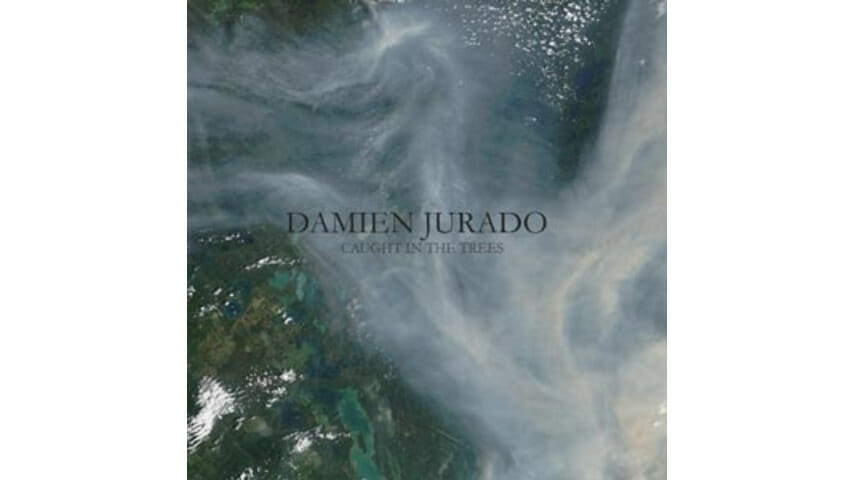
On latest depressed opus, songwriter figures out where he is by examining where he’s been
I always balk when people write off Damien Jurado as the poor man’s Richard Buckner. It’s true that both singers stalk a profound intuition of loss through twisty catacombs of folk, pop rock, country and field-recorded ambience, and that both have rich voices of honey and grit. But Jurado has his own identity. Where Buckner’s lyrics are endlessly enigmatic, Jurado’s are relatively forthright, condensing his desperation around iconic bottles of pills, sheaves of unread letters and notes pinned to doors. If anything, he’s the candid man’s Buckner.
Jurado writes his best songs when he gets out of his own head and projects his sadness outward, like a magic lantern, which makes him more empathetic and plays to his talent for pithy description. The devastating “Medication” imagined a character caught between a schizophrenic brother and a married lover (Jurado’s protagonists are always pining for wives, abducted teens, people who don’t like him—anyone he can’t have), codependent worlds he drew with deft, minimal strokes: “Her man’s a policeman/ with a keen sense of trouble/ he’s known to spot danger/ and all kinds of liars.” He gets into shakier territory when his sadness is the only lifelike figure in his songs, a mode that has threatened to completely overtake his better instincts as of late. On his last album, And Now That I’m in Your Shadow, Jurado’s arrangements were so vanishing and slack, his lyrics so simpering and self-pitying, that you had to wonder if the exhaustion he always sang about was finally catching up with him.
On new album Caught In The Trees, where Jurado continues as a trio with Jenna Conrad and Eric Fisher, there are flashes of exhausted meta-gestures, those hallmarks of nothing-left-to-say. On the tensely chugging “Caskets,” he mentions wearily that “another record is due.” And if he’s frustrated with himself for going through the motions, his fans and the press don’t escape censure. On folk-rock stomper “Coats of Ice,” they’re “making requests for songs that you never play,” oblivious to the man behind the pain, “happy to know that the situation is worse.” “You look like you could use a rest,” Jurado tells himself. “How does it feel to be what you sing about?”
These snowballs become a full-fledged avalanche of fatigued navel-gazing on “Predictive Living,” which would be obnoxious if its lilting melody and maudlin strings weren’t so lovely. Jurado wonders if his best words are behind him, jabs at the record industry, lampoons his own clichés (“another jealous husband to be killed”), and writes off his career with a Sisyphean shrug: “Chords just rearrange.” (Sometimes, just barely—the hitching progression on “Gillian Was a Horse” is nearly identical to one from an earlier Jurado tune, “Letters & Drawings.”) But, as usual, he’s being too hard on himself. If the exhaustion he describes was manifest on And Now That I’m in Your Shadow, it’s at stark odds with Caught In The Trees, which feels as galvanized and lively as anything we’ve heard from Jurado since his masterpiece, Rehearsals for Departure.
Doing away with the meandering fluff of Shadow, Trees alternates between lean, biting folk-rock and haunting ballads that seem to float up from deep, dark wells. With his pair of bandmate friends by his side, he sounds less alone than ever before, and Conrad’s pliant harmonies are a great boon. Still, the best songs here put Jurado’s voice at the very center, displaying his tonal range. On the gently unfolding “Trials,” it’s a soft monochromatic blur with subtle, aching melismata. Amid the twinkling arpeggios and swooning strings of “Last Rights,” it hovers gracefully near falsetto. On the folky “Dimes,” it’s a naturalistic, conversational ramble, and on “Sheets” (where a characteristically masochistic Jurado sleeps “in the very sheets he’s been in”), it’s a viscous croon.
Jurado seems to be singing to us from the grips of a stalemate: His music has always felt like therapy, with wellness as the ultimate end. Yet on “Go First,” he admits that he doesn’t “feel like ever getting well.” At least the tension between his addiction to depression and his longing to escape it has, on this record, produced a music that’s not defeated, but appropriately tense. Jurado the victim has returned as a warrior, suffering his demons without succumbing to total enslavement.